5 Reasons Eating Corn Can Great For Weight Loss
This isn’t a quick weight loss scheme you will find online. We will summarize five facts and myths about eating corn and answer, “Is corn good for weight loss?” Known as a staple food in many parts of the world, corn often gets a bad rap in diet circles due to its high carbohydrate content. However, when consumed in moderation and prepared healthily, corn can be a nutritious addition to a weight-loss diet.
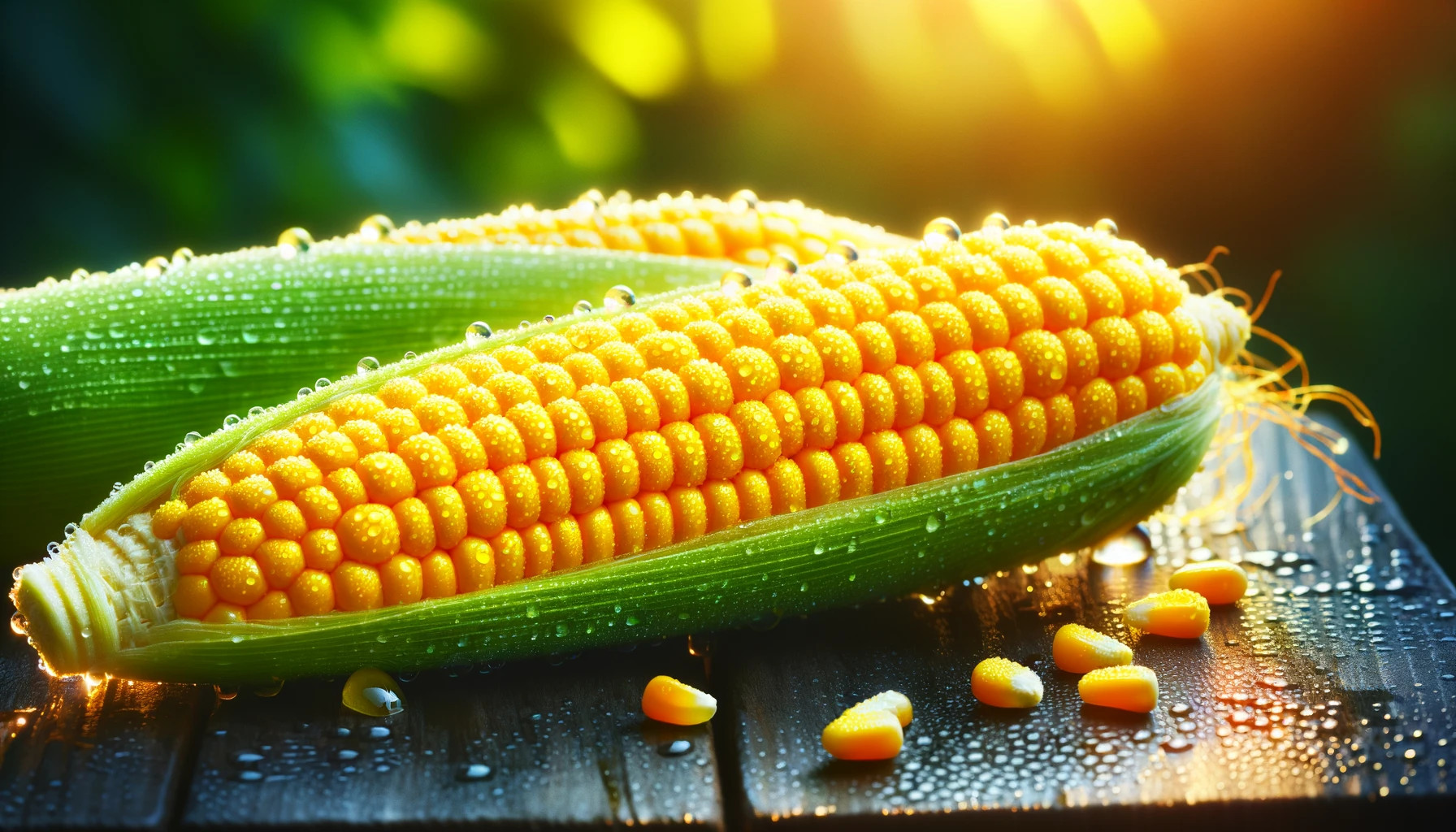
I’ve had my fair share of encounters with corn in all its glorious forms—popped, grilled, boiled, or even some scrumptious cornbread, you name it.
But amidst the crunching and munching, a question often arises: Is corn good for weight loss?
Let’s cut through the noise and get straight to the juicy details.
Spoiler alert: corn can be a powerhouse for those looking to lose weight, and I’m here to share exactly how.
Buckle up as we explore the wonders of this yellow marvel, debunk some myths, and even throw in a delicious, diet-friendly recipe that’ll make you see corn in a whole new light.
Table of Contents
Is Corn Good For Weight Loss?

You see, corn has been somewhat of a culinary paradox. On one side, it’s celebrated as a natural food brimming with fiber.
On the other, it’s often side-eyed for its carbohydrate content.
So, what’s the real scoop?
Can this staple of summer picnics help you shed pounds, or is it just another tasty temptation to avoid?
1. High Fiber Content: A Closer Look
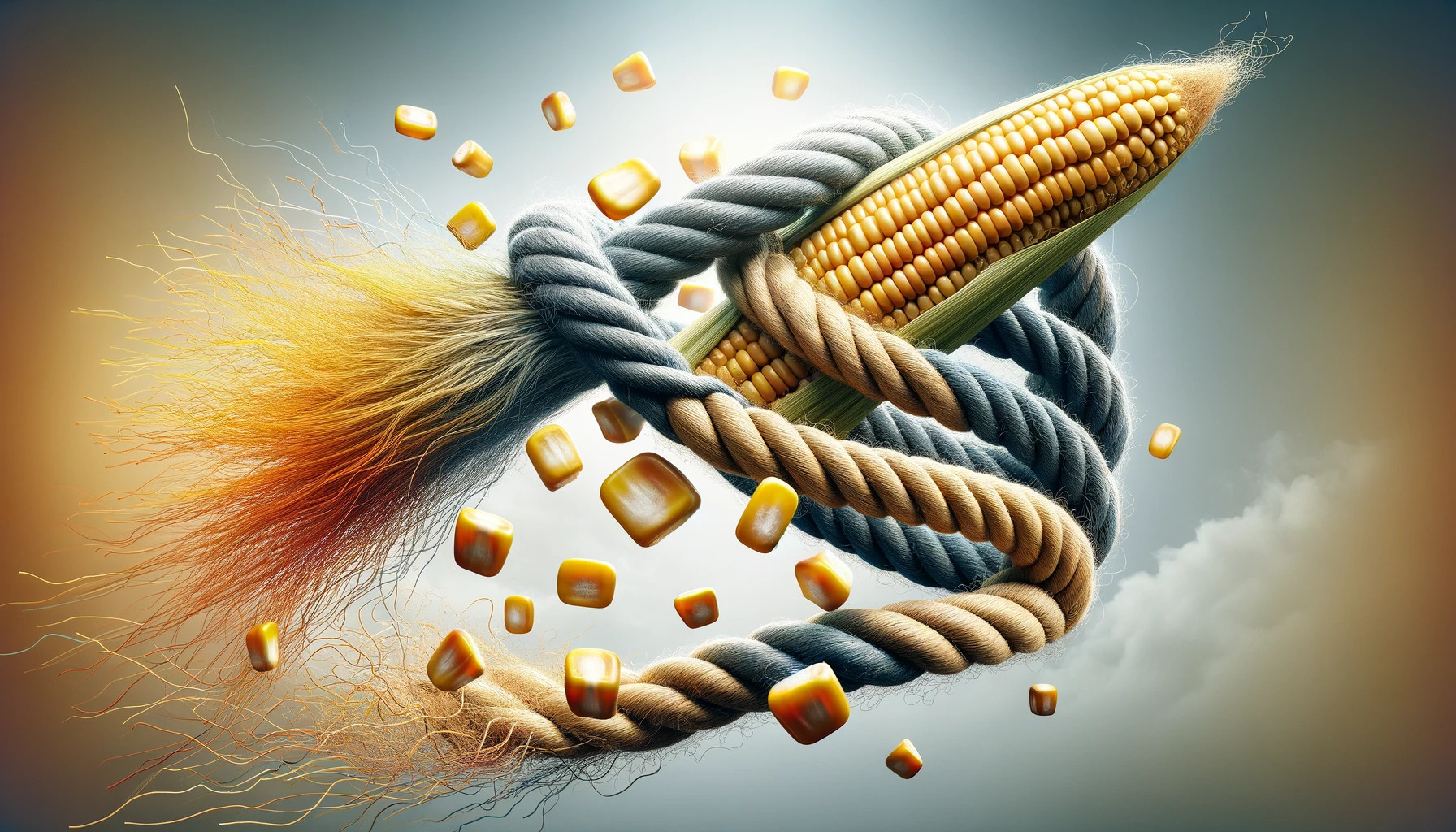
First up, let’s talk fiber. Corn is packed with it. Fiber is your best friend when losing weight because it helps you feel full longer. You’re less likely to raid the pantry an hour after dinner. Here’s the breakdown:
Feel Fuller, Longer: Thanks to its fiber, corn can help you stay full, making you less likely to snack unnecessarily. This can lead to a lower calorie intake overall.
Digestive Health: Fiber aids in digestion, keeping things moving smoothly. A happy gut is crucial for weight loss.
2. The Calorie Perspective
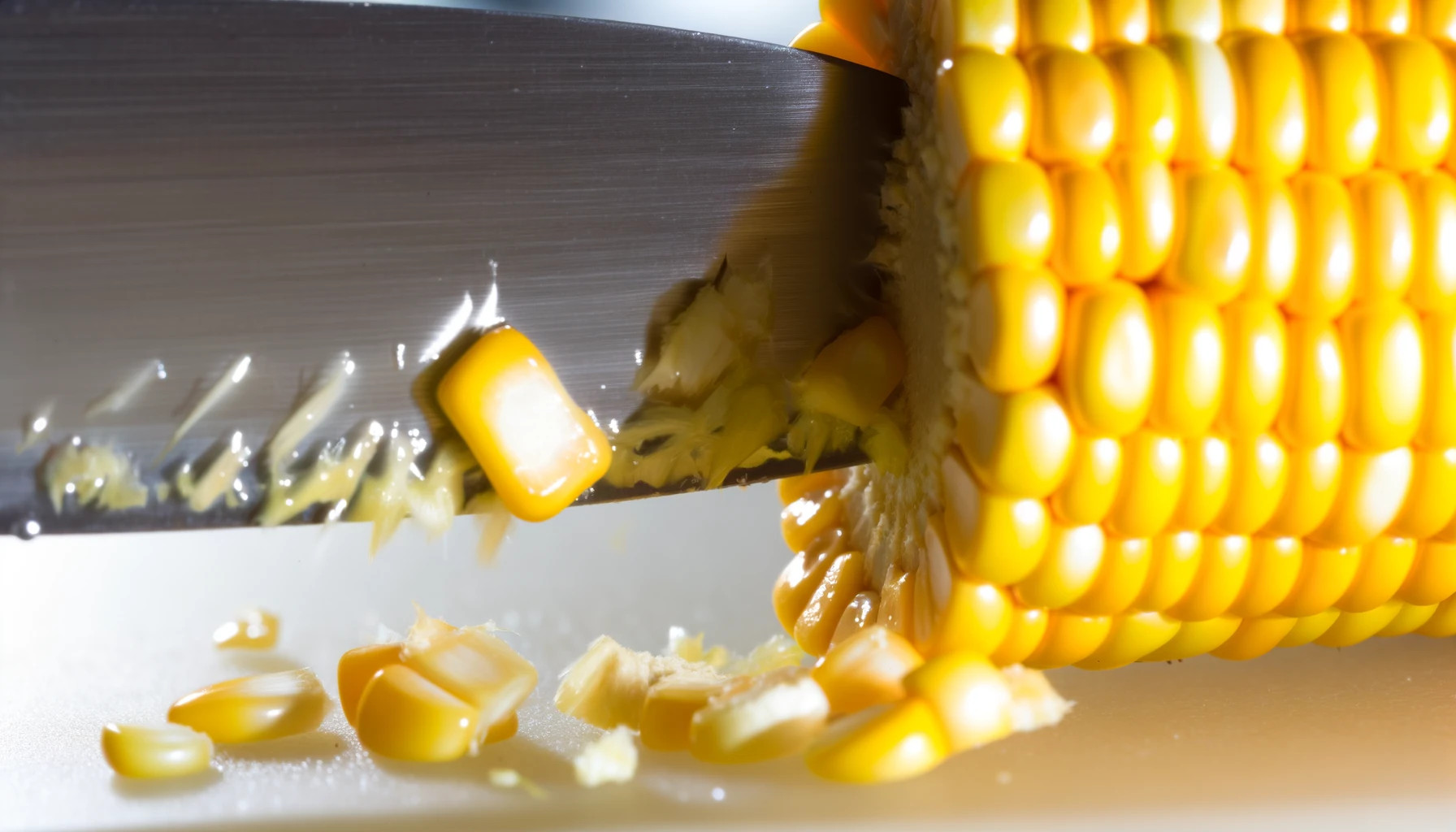
Believe it or not, corn is relatively low in calories. A medium ear of sweet roasted corn has about 77 calories. That’s right, just 77! Here’s why that’s great news:
Low-Calorie Snack: Swap out higher-calorie snacks for corn. It’s the easiest way to reduce your overall calorie intake without feeling deprived.
3. Eat Corn: The Nutrient Powerhouse
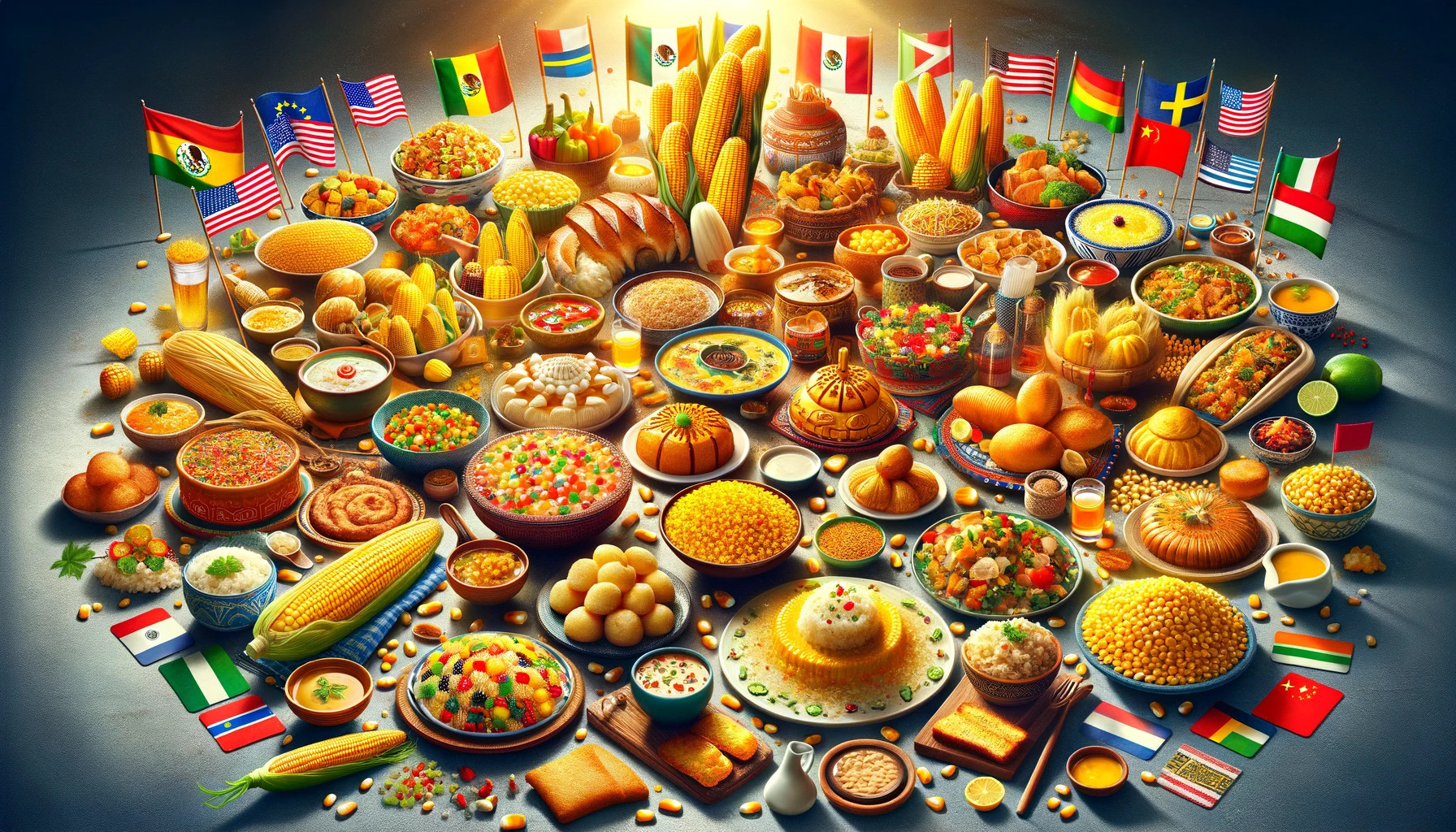
Corn isn’t just about carbs and calories; it’s loaded with nutrients that can support your weight loss journey:
Vitamins and Minerals: Think vitamin C, B vitamins, magnesium, and potassium. These nutrients can help boost your metabolism, increase energy levels, and support overall health.
Antioxidants: Corn has antioxidants that can help fight inflammation, often linked to obesity.
4. Blood Sugar Balance
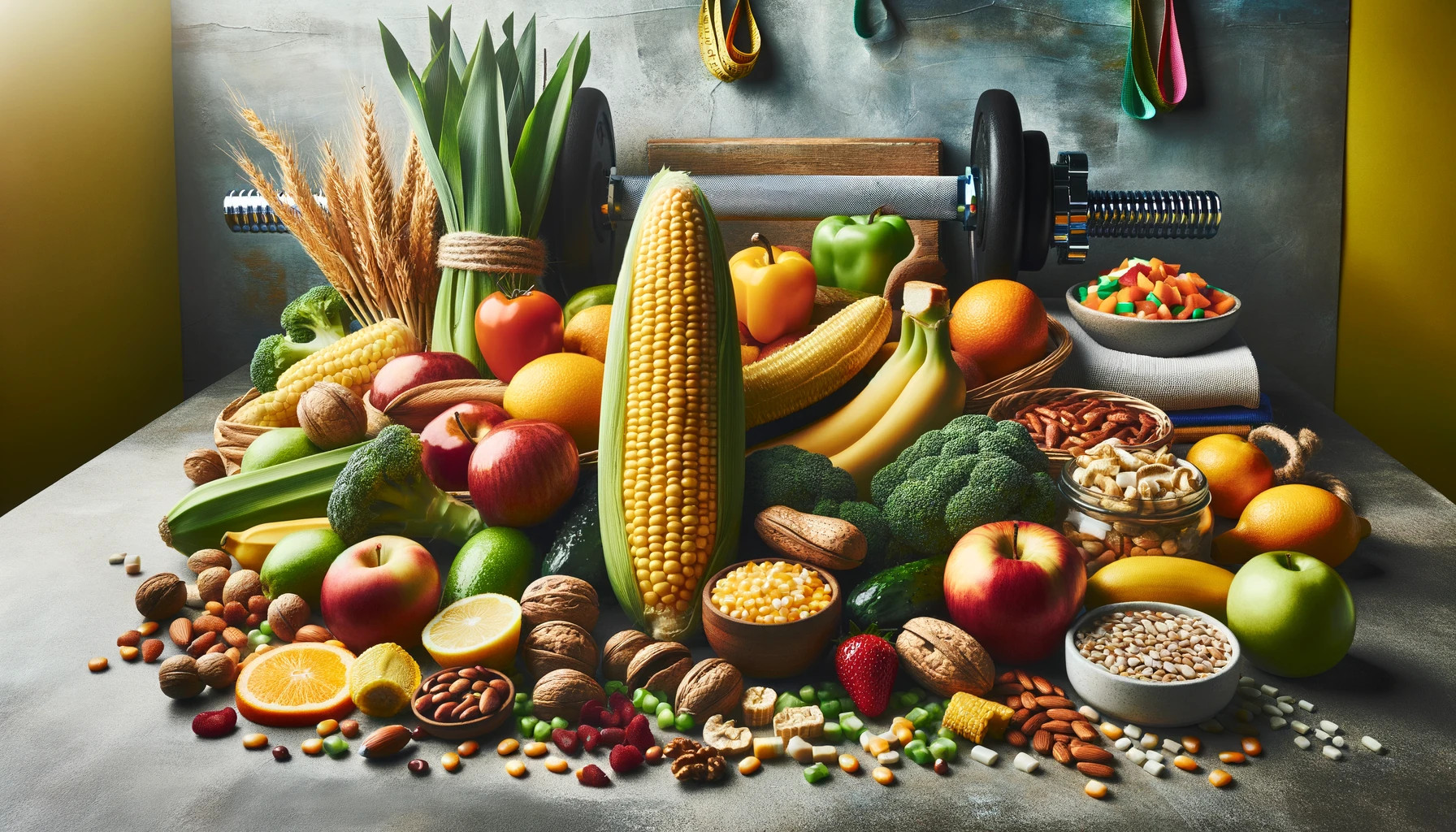
The type of carbs in corn and corn flour can help you manage your blood sugar levels, thanks to its fiber content. This is crucial because stable blood sugar levels can prevent cravings and overeating. Here’s the gist:
Slow Release: The fiber in corn helps slow down the release of sugar into your bloodstream, preventing those dreaded spikes and crashes.
5. Versatility in the Kitchen

Corn’s versatility is unmatched. It can be the star of a dish or a fantastic sidekick, making it a breeze to incorporate into your weight loss diet:
Recipe Creativity: Corn can be added to many dishes, keeping your diet interesting and nutritious from salads to soups.
Debunking Corn Myths
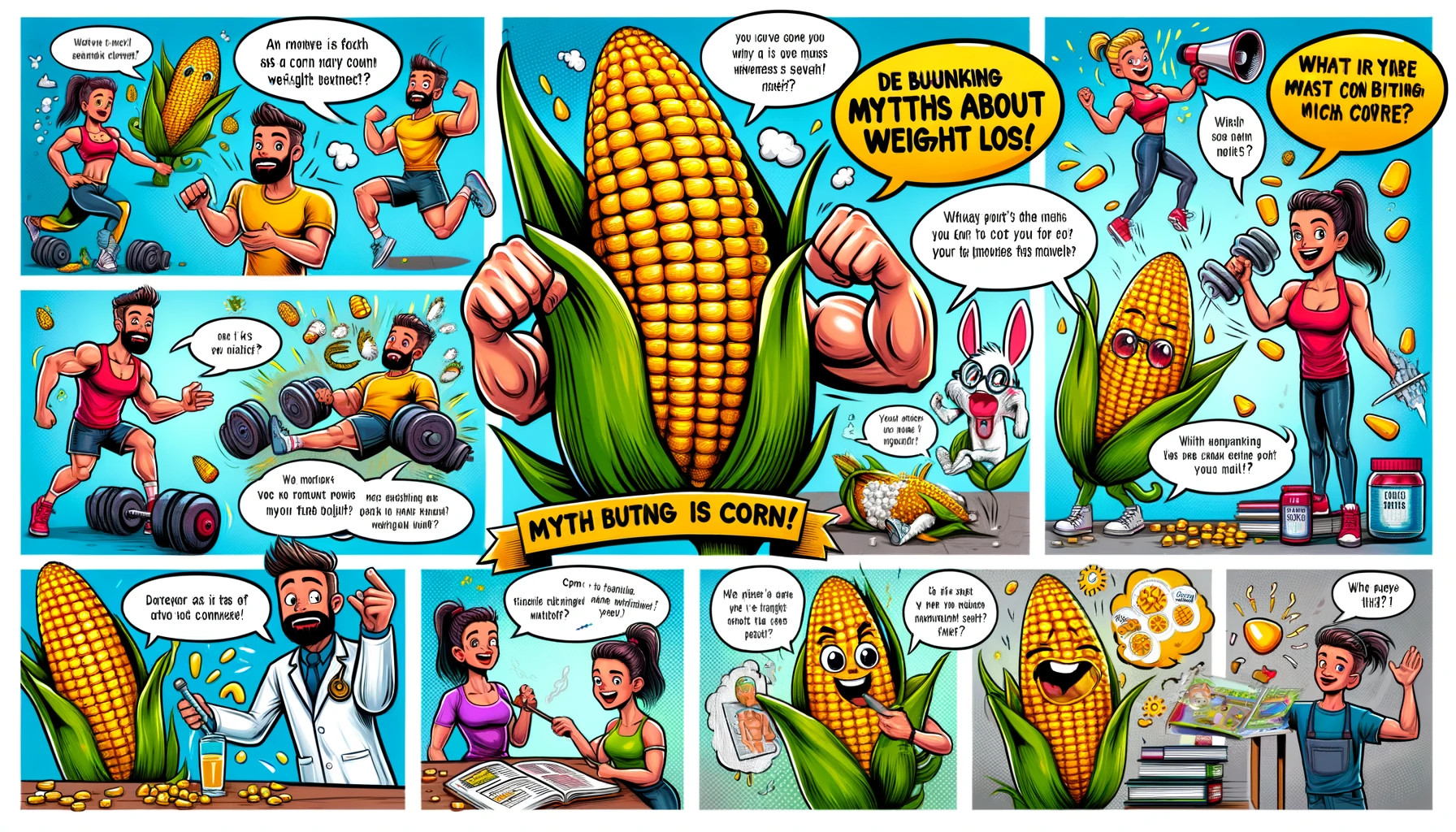
Before we jump into our delectable corn for weight loss recipe, it’s essential to set the record straight on a couple of myths surrounding corn and weight loss. Misinformation can be a real party pooper, and I’m here to clear the air with some facts that might just surprise you.
Myth 1: Corn is Just Empty Carbs
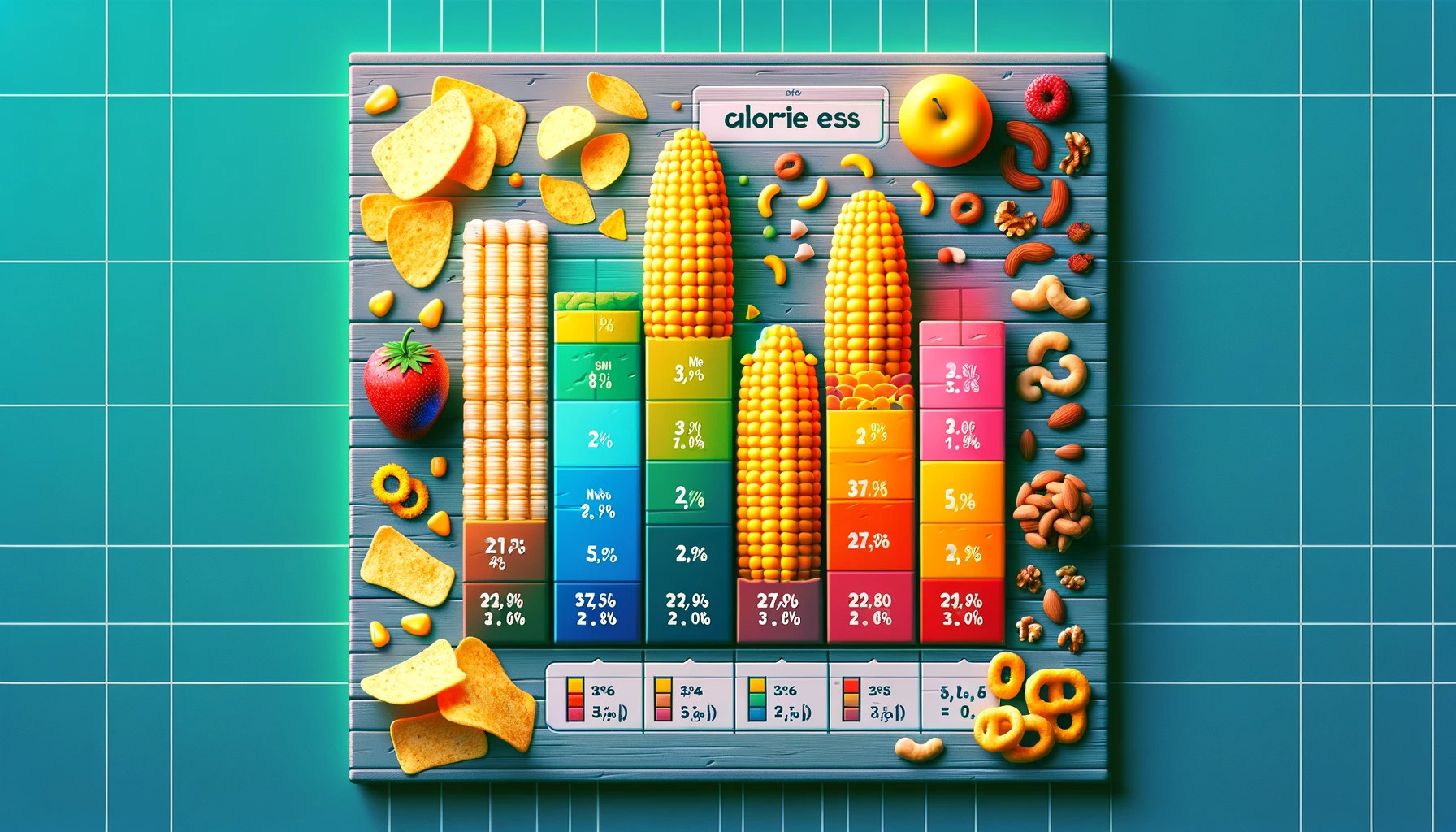
The Truth: Boiled Corn is anything but empty. It contains carbohydrates, but fiber, vitamins, minerals, and antioxidants accompany these. These nutrients are vital in maintaining a healthy metabolism, providing energy, and supporting overall health—key components in weight loss.
Myth 2: Corn Leads to Weight Gain
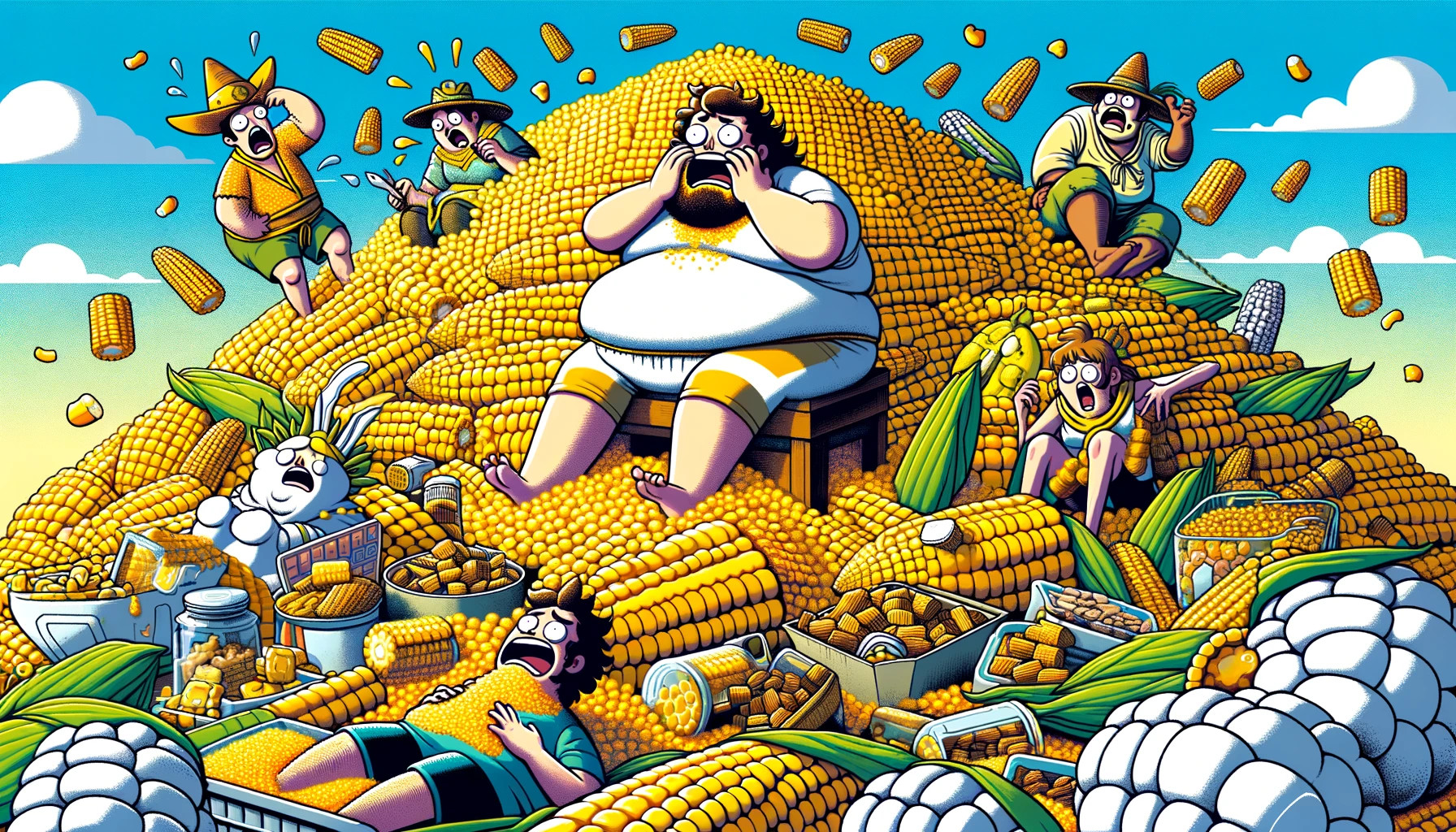
The Reality: No single food, corn included, is the direct cause of weight gain. Weight gain occurs when you consume more calories than you burn, regardless of the source. Corn, when consumed in moderation and as part of a balanced diet, even corn tortillas, does not cause weight gain. In fact, its fiber content can help control hunger and reduce overall calorie intake.
Myth 3: Corn’s is Just as Bad as High Fructose Corn Syrup
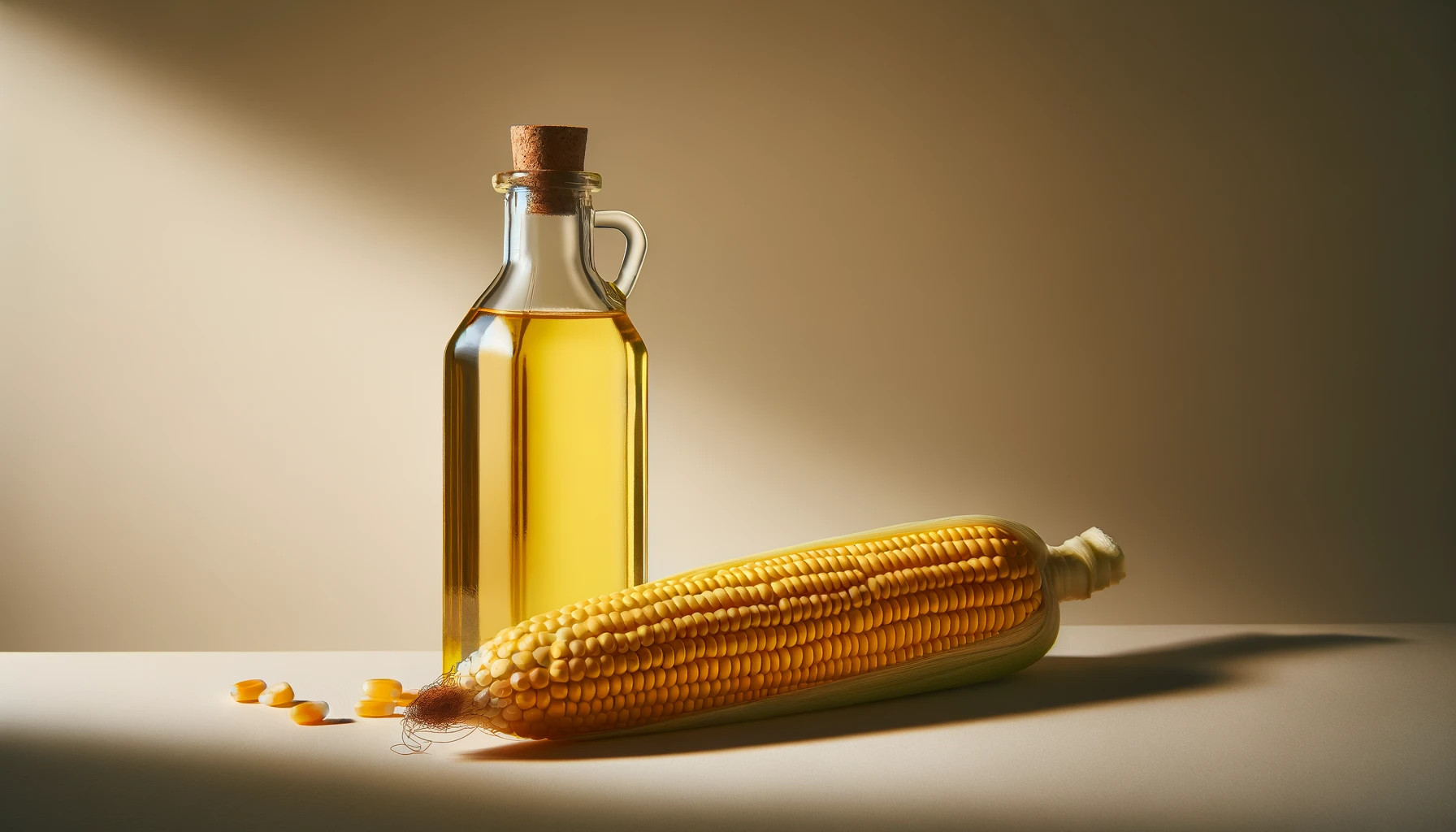
The Facts: Corn contains natural sugars, but let’s not confuse it with the processed sugars in sweets and sodas. The natural sugars in corn are part of a complex nutritional profile that provides nutritional value and also includes fiber, which helps regulate blood sugar levels. So, while moderation is key, the sugars in corn are not something to fear for the average person.
Embracing Corn in Your Weight Loss Journey
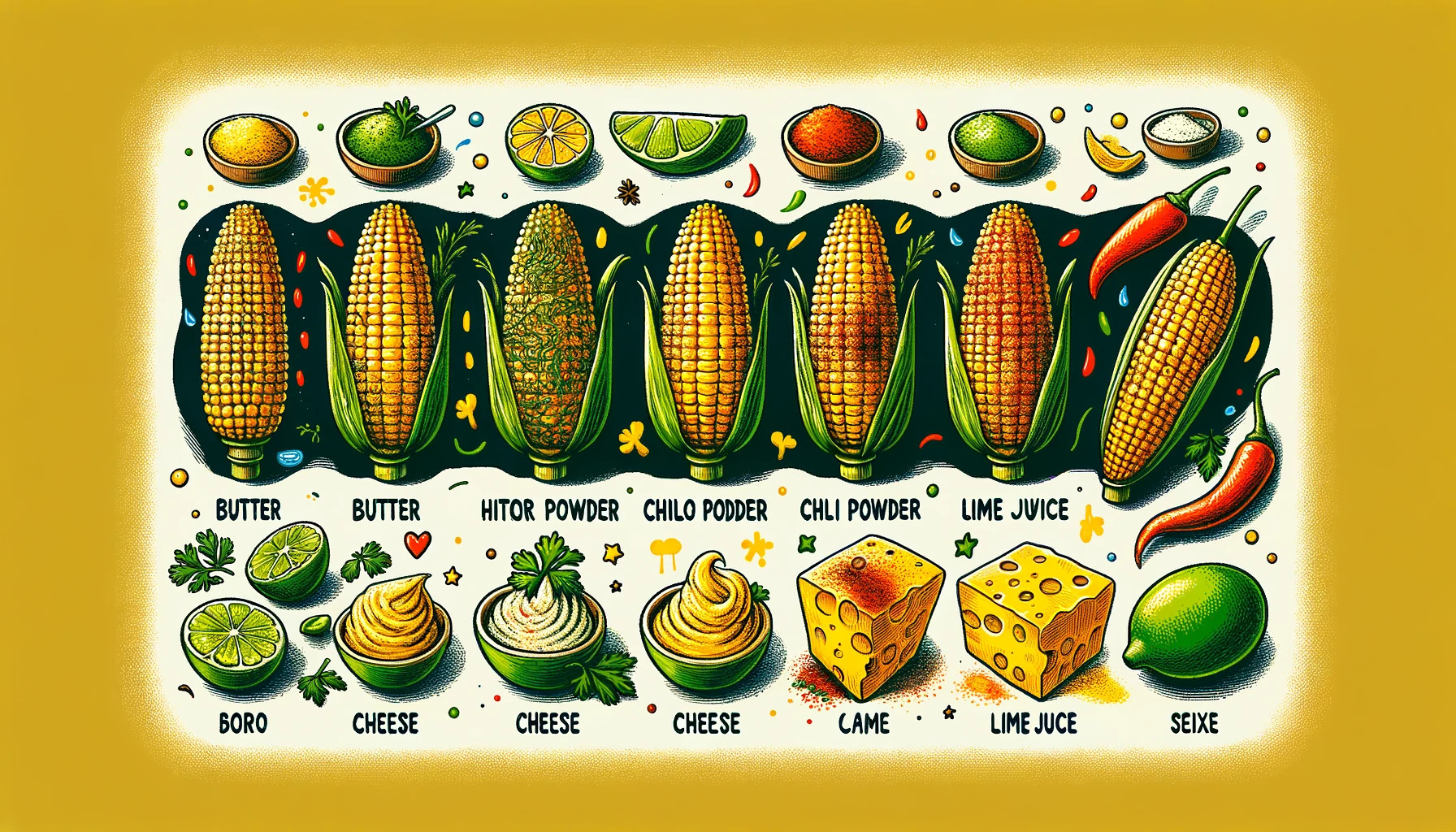
As we wrap up our culinary exploration of corn and its role in weight loss, it’s clear that this golden grain is more than just a staple at summer barbecues. It’s a versatile, nutrient-rich food that can be an excellent addition to a weight-loss diet when prepared and portioned thoughtfully. Let’s round off with some final thoughts and tips on making corn a weight loss ally rather than a foe.
Making Corn Work for You
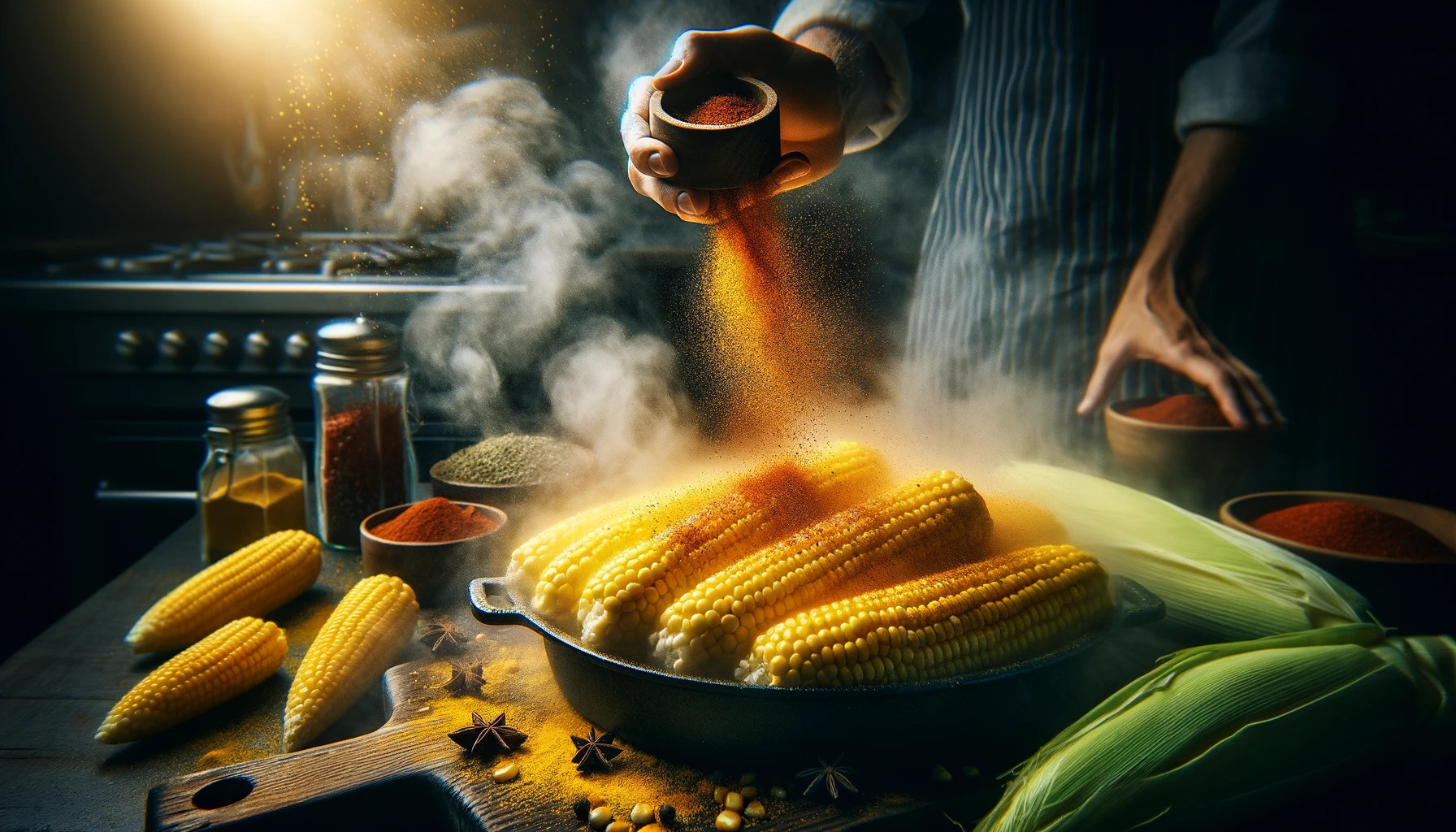
Choose Whole Corn: Opt for whole corn (like corn on the cob or frozen kernels) over processed corn products. Whole corn retains its fiber and nutrients, making it a healthier choice.
Watch Your Portions: Like any food, moderation is key. Enjoy corn as part of a balanced plate, alongside lean proteins and plenty of vegetables.
Be Mindful of Add-Ons: It’s easy for corn’s calorie count to skyrocket with butter and salt. For flavor without the added fats, experiment with herbs and spices, like chili powder or smoked paprika.
Creative Corn Incorporation Ideas
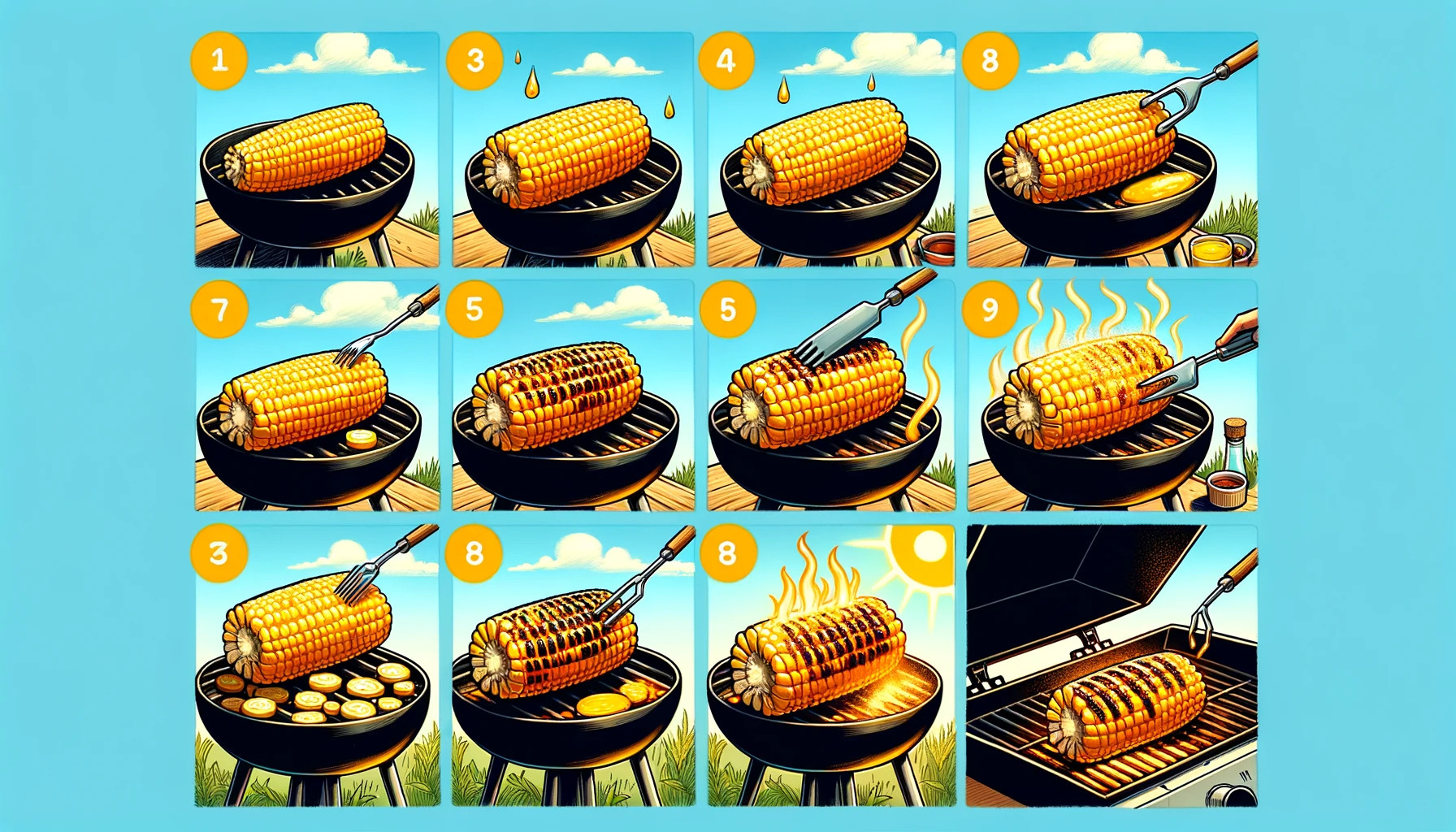
Grilled Corn: Brush corn on the cob with a bit of olive oil and your favorite herbs. Grill for a smoky flavor that’s hard to beat.
Corn Salsa: Mix corn kernels with diced tomatoes, onions, cilantro, and lime juice for a fresh salsa that pairs well with fish or chicken.
Stir Into Soups: Add corn to soups and stews for a natural sweetness and crunch.
Salad Topper: Sprinkle corn over your greens for a pop of color and fiber.
Closing Thoughts
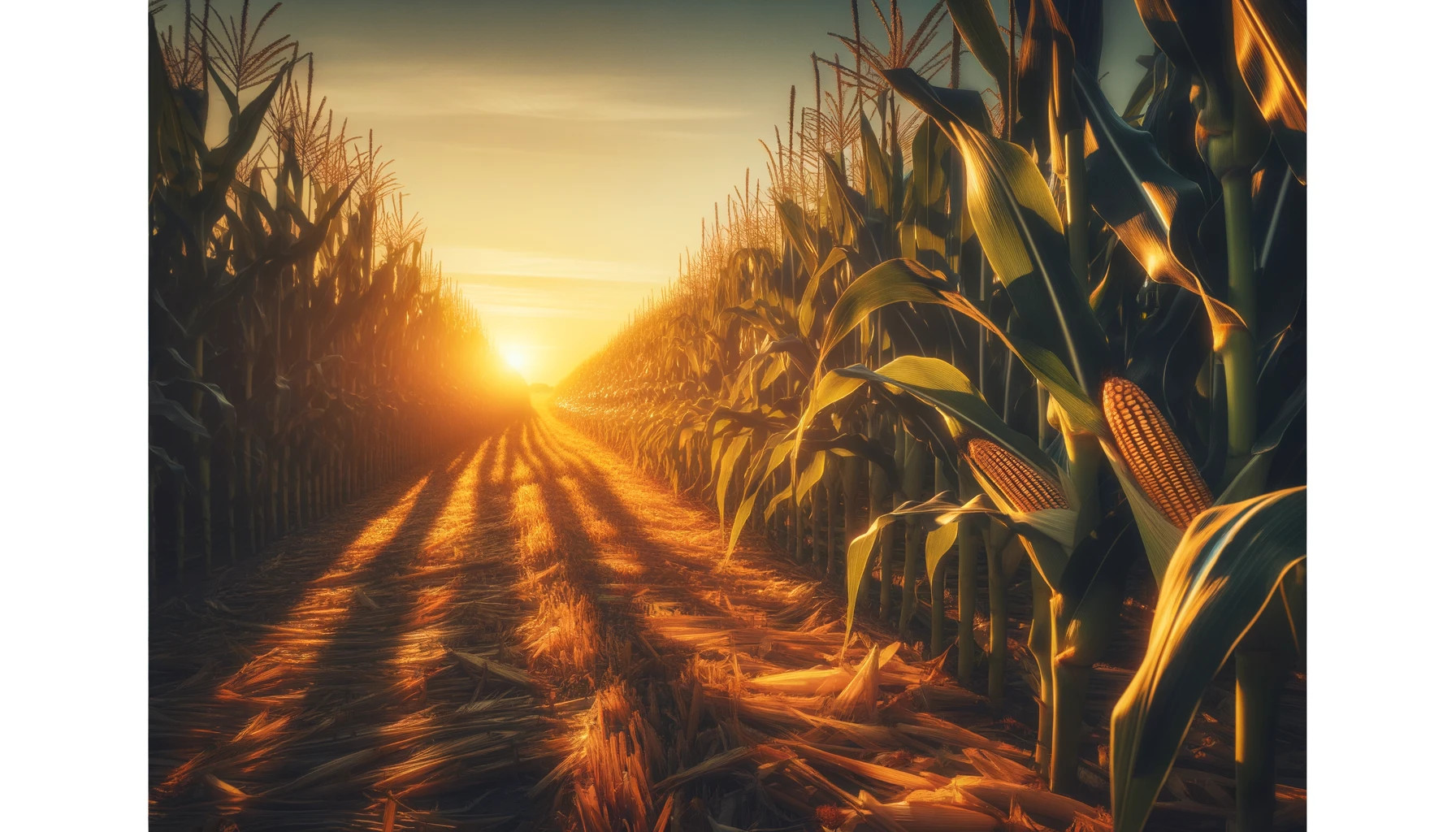
Corn, with its natural sweetness, versatility, and nutritional profile, can play a part in your weight loss journey.
It’s about embracing this grain in its most natural form, getting creative in the kitchen, and always being mindful of balance and moderation.
As we’ve seen, corn can fit beautifully into a healthy, weight-conscious diet, proving that delicious and nutritious can go hand in hand.
As you continue navigating your path to a healthier you, consider corn one of the many tools in your culinary arsenal.
Whether through a zesty salad, a grilled masterpiece, or a simple, steamed side dish, corn can add variety, nutrition, and a touch of sweetness to your meals, making the journey toward weight loss enjoyable and flavorful.
Remember, the key to a successful diet is not just cutting out foods but finding healthy, satisfying ways to enjoy what you eat.
Corn, in all its golden glory, is a testament to the fact that eating well doesn’t have to mean giving up on taste.
Healthy Delicious Sweet Corn Recipe:
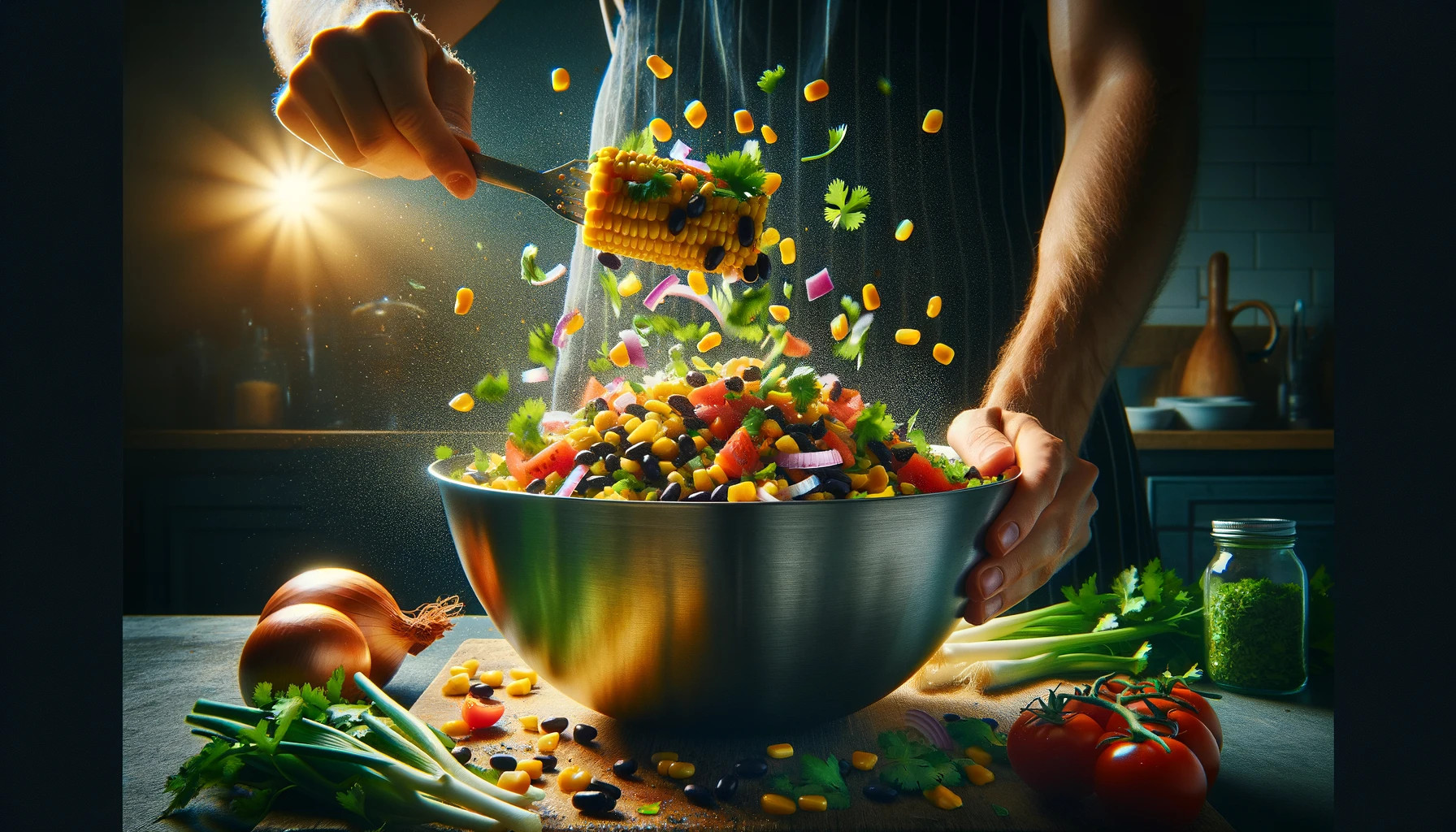
Zesty Sweet Corn and Black Bean Salad
Now, let’s get to the fun part—a recipe that’s as easy to make as it is good for your weight loss goals. This Zesty Corn and Black Bean Salad is a crowd-pleaser and a perfect example of how versatile and diet-friendly corn can be.
Ingredients:
2 cups of cooked corn kernels (fresh, frozen, or canned without added sugar or salt)
1 can (15 ounces) black beans, rinsed and drained
1 red bell pepper, diced
1 avocado, diced
1/2 red onion, finely chopped
1/4 cup fresh cilantro, chopped
Juice of 2 limes
2 tablespoons olive oil
Salt and pepper to taste
1 teaspoon ground cumin
Optional: 1 jalapeño, finely chopped, for a spicy kick
Instructions:
Combine the Salad: In a large bowl, mix together the corn, black beans, red bell pepper, avocado, red onion, and cilantro. If you’re adding jalapeño for some heat, toss it in now.
Dress It Up: In a small bowl, whisk together lime juice, olive oil, salt, pepper, and ground cumin. Adjust the seasoning to your taste.
Mix: Pour the dressing over the salad and gently toss to combine everything evenly.
Chill: Let the salad sit in the refrigerator for at least 30 minutes before serving. This allows the flavors to meld together beautifully.
Serve: Enjoy this salad on its own, as a side, or scoop it up with whole-grain tortilla chips for a delightful crunch.
This Zesty Corn and Black Bean Salad showcases corn’s versatility and leverages its nutritional benefits to support your weight loss journey.
Combining fiber from the corn and black beans, healthy fats from the avocado, and the antioxidant-rich bell pepper makes this dish a nutritional powerhouse.
Enjoying corn as part of a balanced diet can support your weight loss efforts. It’s all about how you incorporate it into your meals and your portion sizes.
This salad is a testament to the fact that healthy eating doesn’t have to be bland or boring—corn can add a pop of flavor and nutrition to your diet in the most delightful ways.
FAQ And Additional Information:
Is corn on the cob good for losing belly fat?
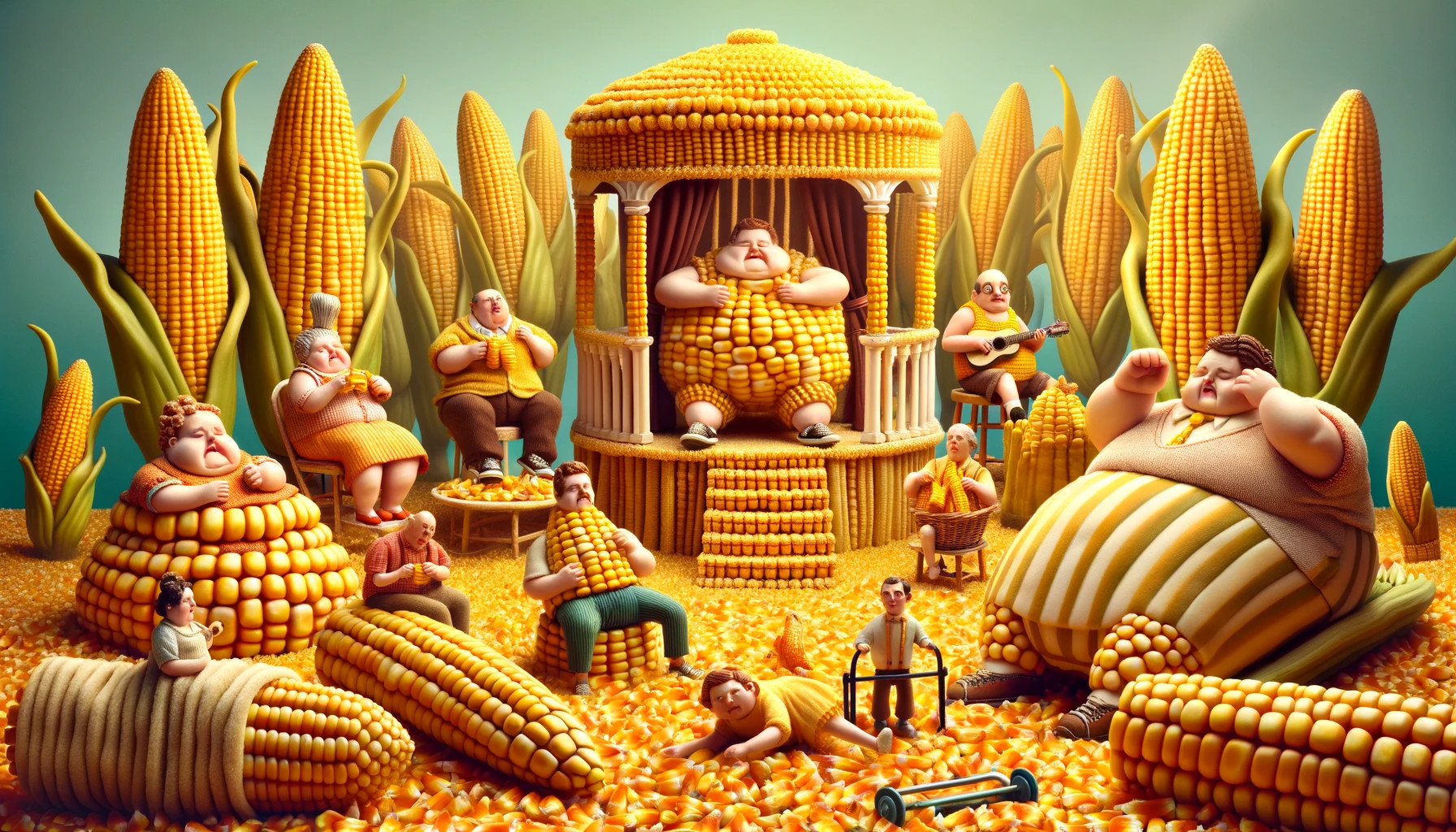
Corn on the cob can be part of a diet aimed at losing belly fat, but it’s important to consider the broader context of your overall eating habits and lifestyle. Like any form of weight loss, losing belly fat requires a holistic approach that includes a balanced diet, regular physical activity, and overall calorie control. Here’s how corn on the cob fits into the picture:
Nutritional Aspects of Corn on the Cob
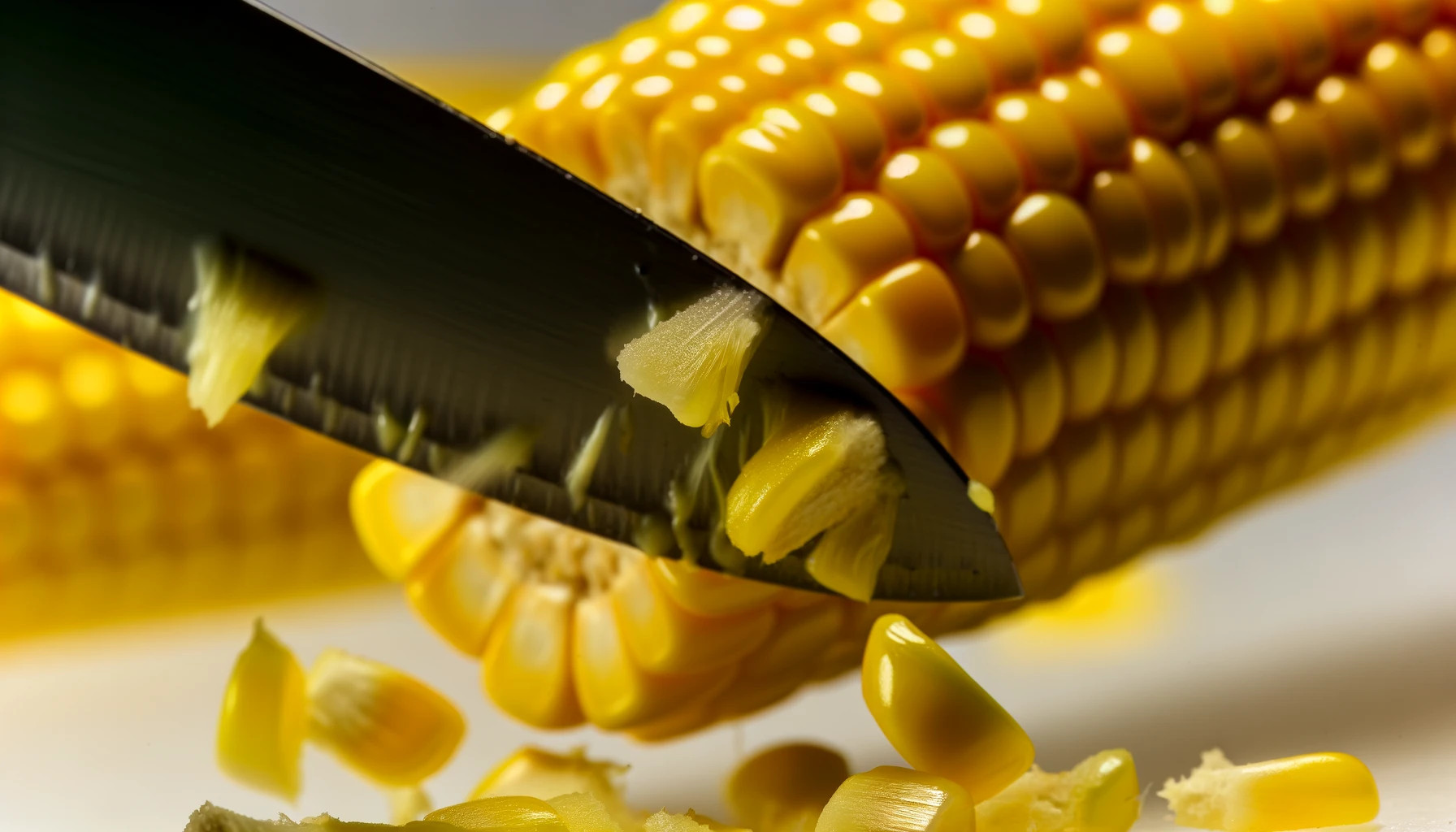
High in Fiber: Corn is a good source of dietary fiber, which can help you feel full longer and may prevent overeating. This is crucial for weight loss, specifically in targeting belly fat, as controlling calorie intake is essential.
Moderate in Calories: Corn on the cob is relatively low in calories when eaten plain. One medium ear of corn has about 77 calories. Keeping calorie intake in check, including belly fat, is vital for losing weight.
Nutrient-Rich: It contains essential vitamins and minerals (such as B vitamins, vitamin C, potassium, and magnesium) that support overall health. While these nutrients don’t directly target belly fat, maintaining a nutrient-rich diet can aid in weight loss and metabolic health.
Considerations for Losing Belly Fat

Calorie Balance: Losing belly fat requires you to be in a calorie deficit, meaning you consume fewer calories than you burn. Incorporating corn on the cob into your meals can be a healthy choice if you’re mindful of overall calorie intake.
Whole Foods Diet: A diet focusing on whole foods, like vegetables, fruits, whole grains (including corn on the cob), lean proteins, and healthy fats, is effective for weight loss and fat reduction. Corn on the cob can be a part of this dietary approach.
Watch the Toppings: How you prepare corn on the cob can significantly affect its healthfulness. Butter, salt, and other high-calorie or high-fat toppings can add extra calories and diminish its benefits for weight loss. Opt for herbs, spices, or a squeeze of lime for flavor without the added fat and calories.
Lifestyle Factors
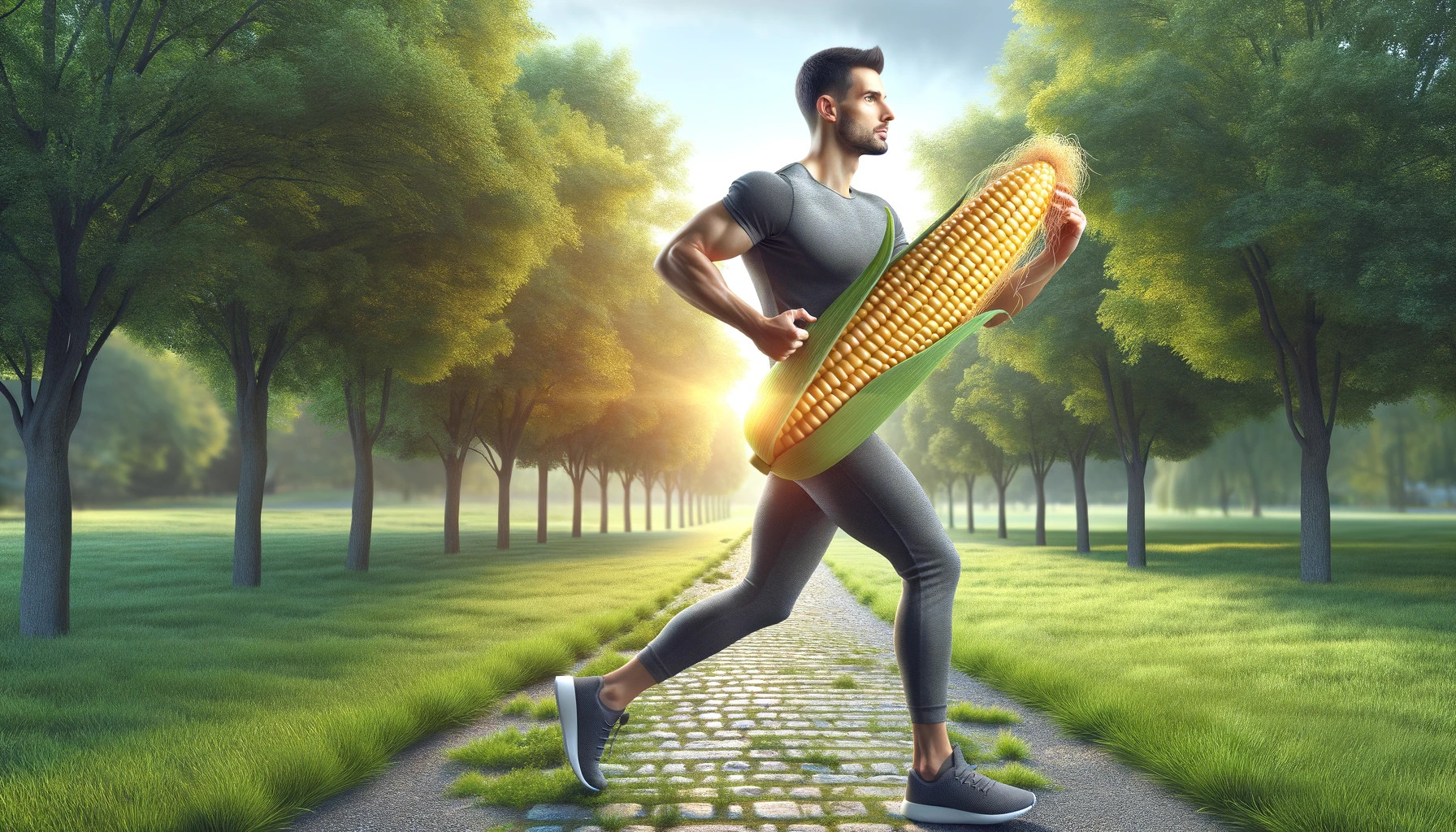
Exercise: Regular physical activity, especially exercises that target the whole body, is crucial for losing belly fat. Strength training and cardiovascular exercises can help increase muscle mass and boost metabolism, aiding in fat loss.
Sleep and Stress: Adequate sleep and stress management are also important for weight loss. Poor sleep and high-stress levels can lead to hormonal imbalances that promote weight gain in the belly area.
Is corn better than rice for weight loss?
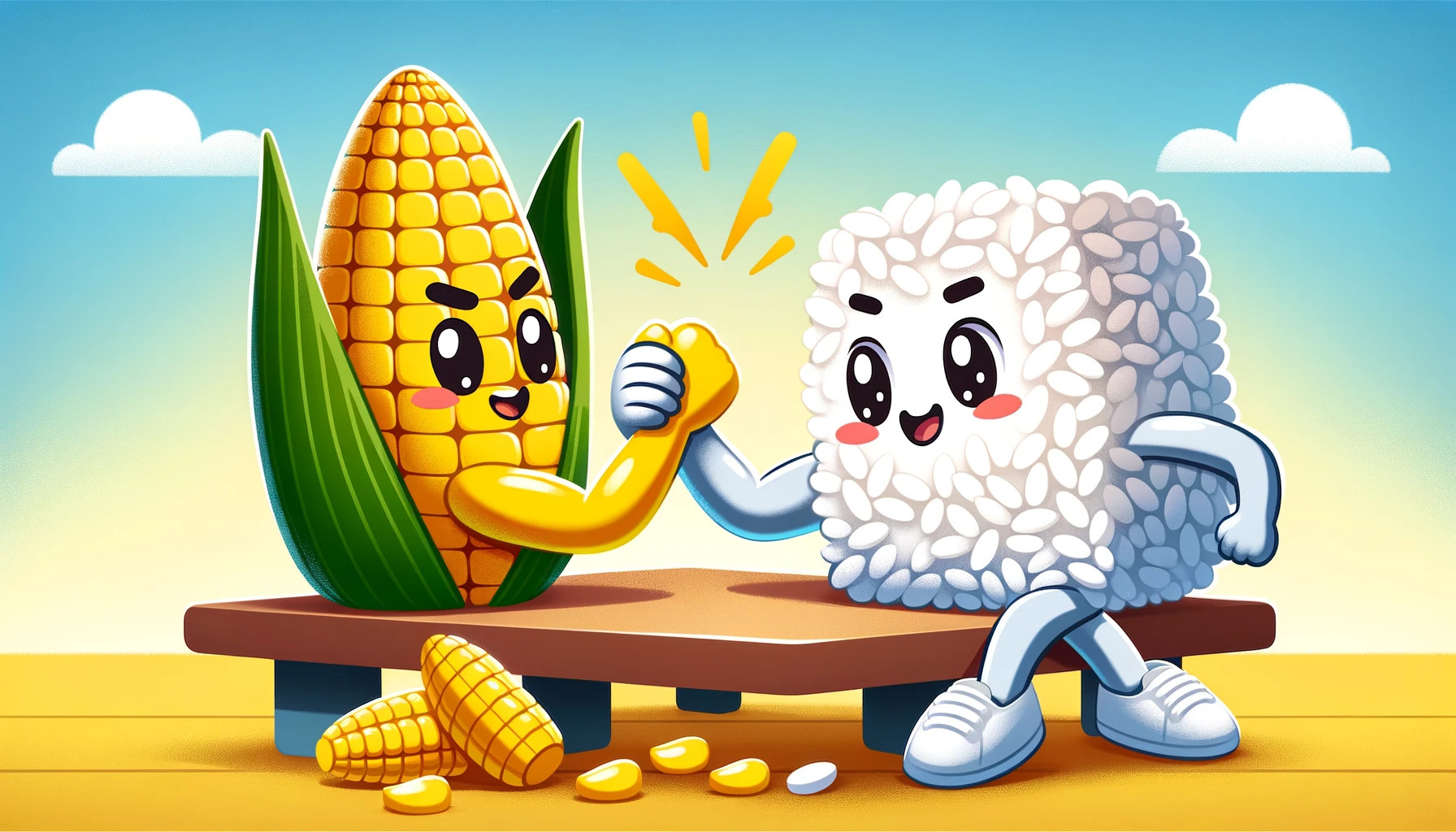
When considering whether corn is better than rice for weight loss, it’s important to look at various factors such as nutritional content, calorie density, satiety levels, and how they fit into your overall diet. Both corn and rice have their places in a balanced diet, but they bring different nutritional benefits. Here’s a comparison to help you understand how they might impact weight loss efforts:
Nutritional Content
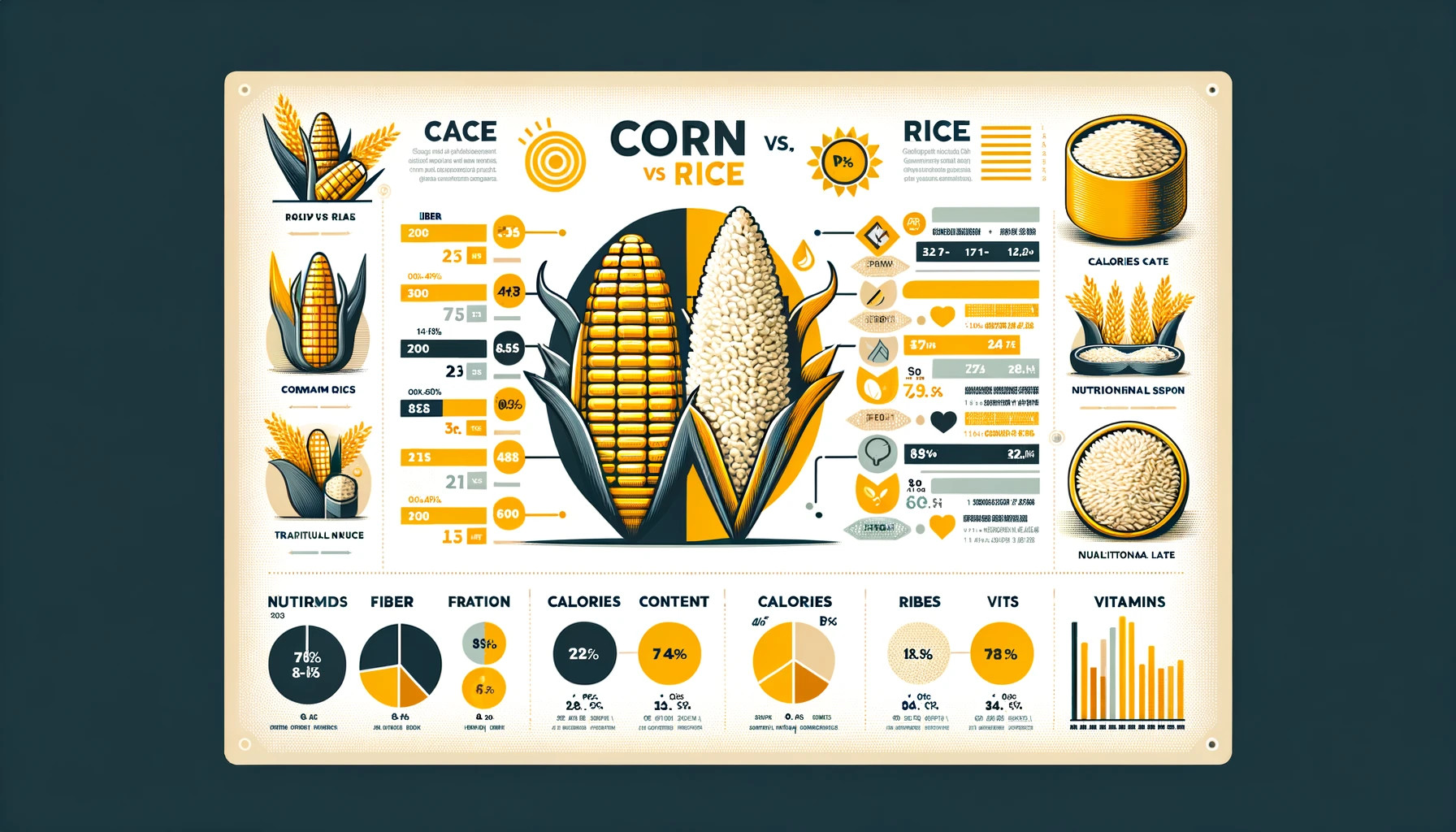
Corn: Corn is a good source of fiber, vitamins (such as B vitamins and vitamin C), minerals (including magnesium and potassium), and antioxidants. The fiber content in corn can help with satiety, making you feel fuller for longer, which is beneficial for weight management.
Rice: White rice is often considered less beneficial for weight loss due to its higher glycemic index and lower fiber content than brown rice. Brown rice, on the other hand, is a whole grain that provides more fiber, vitamins, and minerals than white rice, making it a better choice for weight loss.
Calorie Density and Satiety

Corn: Generally, corn is lower in calories than rice, with a medium ear of corn (about 90 grams) containing approximately 77 calories. The fiber content in corn also adds to the feeling of fullness.
Rice: Rice is more calorie-dense than corn. A cup of cooked brown rice contains about 218 calories, while a cup of cooked white rice contains about 242 calories. However, brown rice’s higher fiber content can also contribute to satiety.
Impact on Weight Loss

The impact of corn and rice on weight loss can vary depending on how they’re incorporated into your diet. Corn might be a more favorable option for someone looking to reduce calorie intake due to its lower calorie content and higher fiber, which can aid in feeling full. Brown rice, with its fiber and nutrient profile, can also be a healthy part of a weight loss diet, especially as it provides more sustained energy and helps with satiety.
Considerations
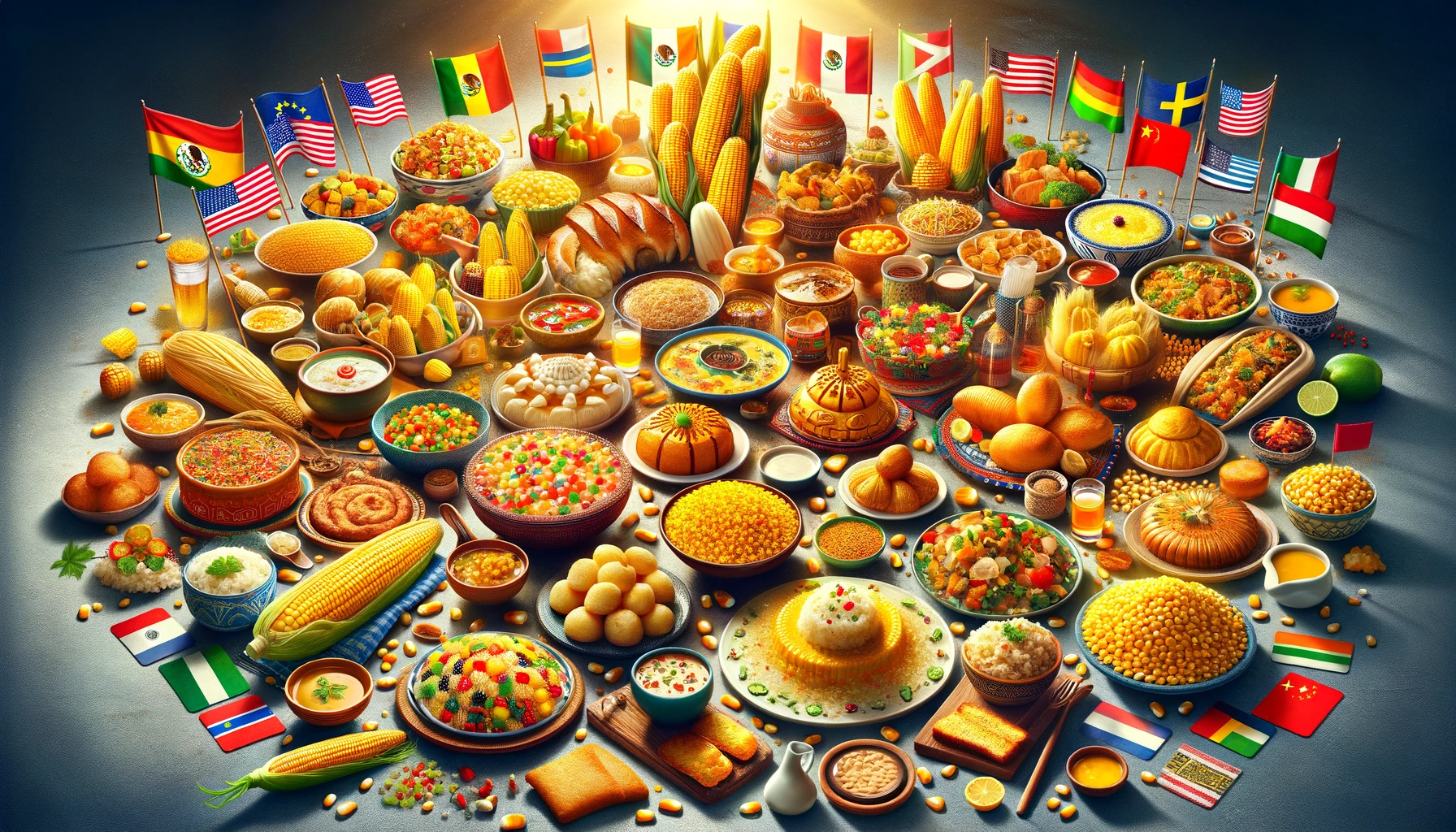
Portion Control: Regardless of whether you choose corn or rice, portion control is key. It’s easy to overeat both, leading to a higher calorie intake.
Overall Diet Quality: Both corn and rice can fit into a weight loss diet if the rest of the diet is balanced and includes a variety of foods to ensure adequate nutrient intake.
Preparation Methods: How you prepare corn and rice can also affect their healthfulness. Opting for boiled or grilled corn and avoiding high-calorie toppings can keep it a healthier choice. Similarly, preparing rice with minimal added fats and choosing brown rice over white can make it a better option for weight loss.
Both corn and brown rice have their advantages for weight loss when consumed in moderation, as part of a balanced diet, and prepared healthily. The choice between them should depend on your personal preferences, dietary needs, and overall eating habits.
Is corn a good fat or bad fat?

Corn itself is not categorized as a “fat” — it is primarily considered a starchy vegetable or grain, depending on how it’s consumed. Its primary macronutrients are carbohydrates, fiber, vitamins, and minerals. However, corn does contain small amounts of fat, but it’s important to distinguish between the types of fats present and the concept of “good” versus “bad” fats within the context of corn and its derivatives.
Types of Fats in Corn
The fat found in whole corn is primarily unsaturated, which includes monounsaturated and polyunsaturated fats. These are healthier fats because they can help lower cholesterol levels, reduce inflammation, and provide other health benefits. Corn oil, extracted from the germ of corn kernels, is rich in polyunsaturated fatty acids, particularly linoleic acid (an omega-6 fatty acid), and monounsaturated fats.
Good Fats

Monounsaturated Fats (MUFAs): Found in high concentrations in foods like olive oil, avocados, and nuts, MUFAs are known for their heart-health benefits.
Polyunsaturated Fats (PUFAs): These include omega-3 and omega-6 fatty acids found in fish, flaxseeds, and walnuts, as well as corn oil. They are essential fats, meaning the body cannot produce them, and they must be obtained through the diet.
Bad Fats

Saturated Fats: Typically found in animal products and some tropical oils, saturated fats are often linked to higher cholesterol levels and an increased risk of heart disease when consumed in excess.
Trans Fats: These are mostly found in processed foods and are created through hydrogenation. Trans fats are associated with numerous negative health effects, including an increased risk of heart disease.
Corn’s Fat Content
When considering corn’s role in your diet from a fat perspective:
Whole Corn: Eating corn on the cob or whole kernel corn provides a minimal amount of fat, most of which is unsaturated and considered healthy.
Corn Oil: While corn oil is high in PUFAs and can be a healthier choice than saturated fats, it’s still important to consume it in moderation due to its high-calorie density and the balance of omega-6 to omega-3 fatty acids. A high intake of omega-6 fats without enough omega-3 fats can contribute to inflammation and other health issues.
Conclusion
Corn, in its whole form, contains small amounts of fat, primarily the healthier unsaturated types. Consuming whole corn should not be a concern regarding “good” or “bad” fats for most people.
However, like with all foods, the key is balance and moderation. When it comes to corn oil or processed foods made with corn derivatives, mindful consumption is important to maintain a healthy balance of dietary fats.
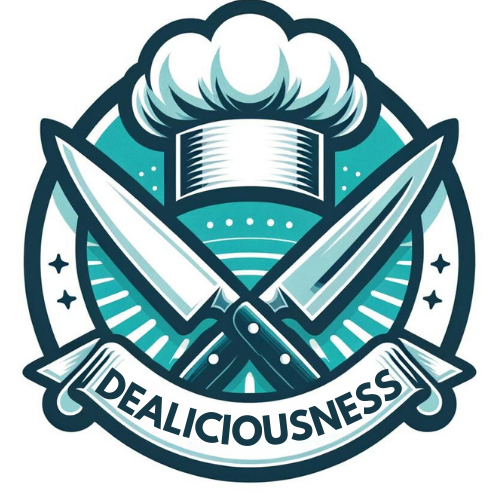
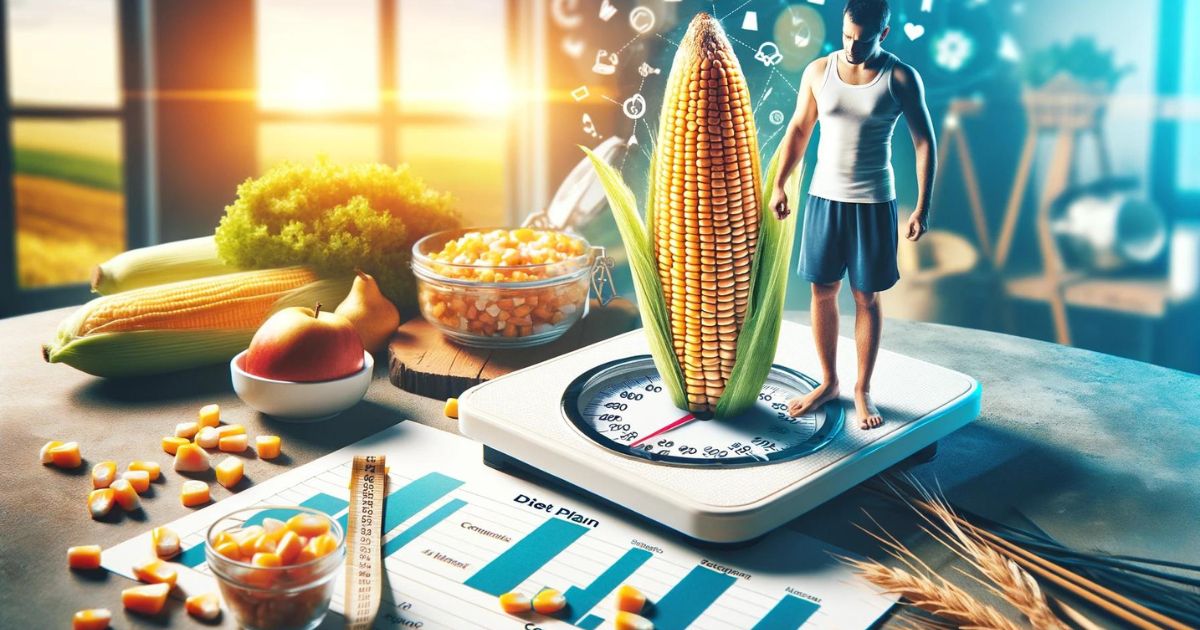
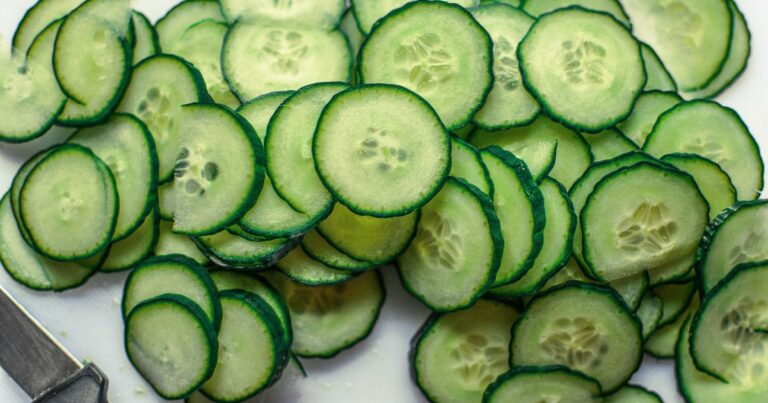
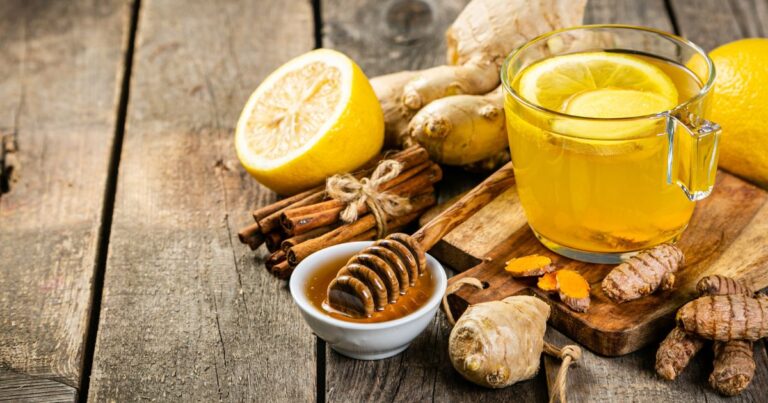
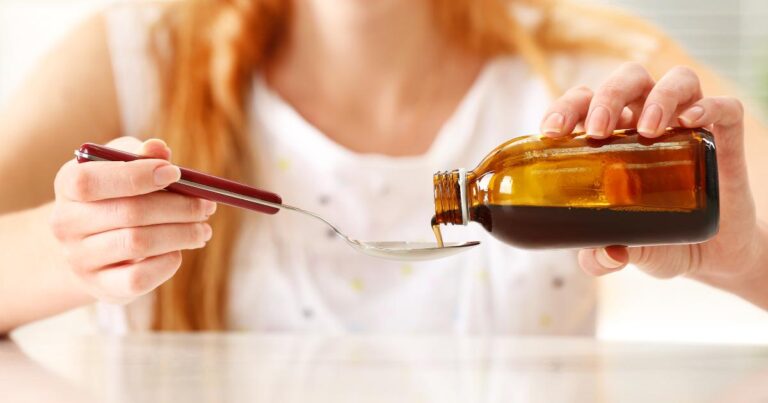
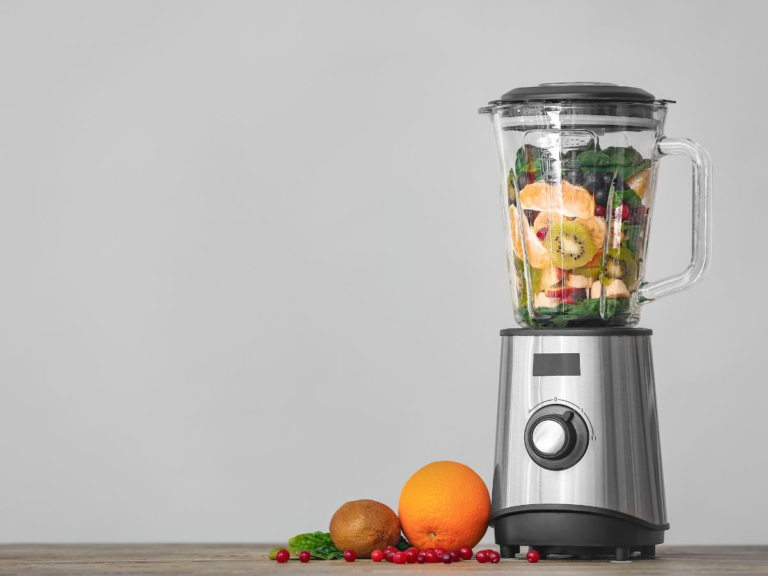
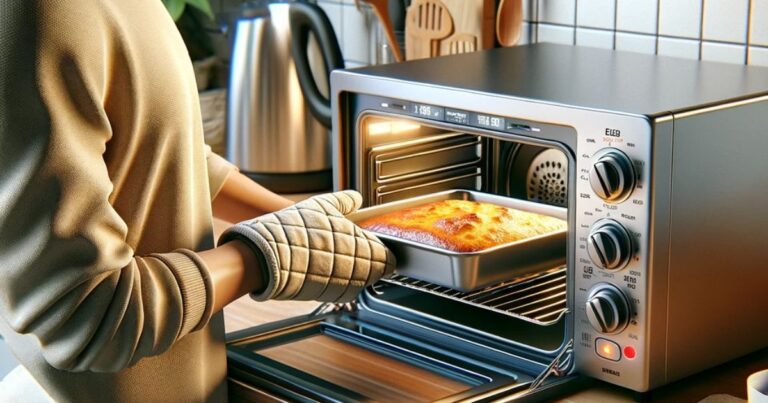
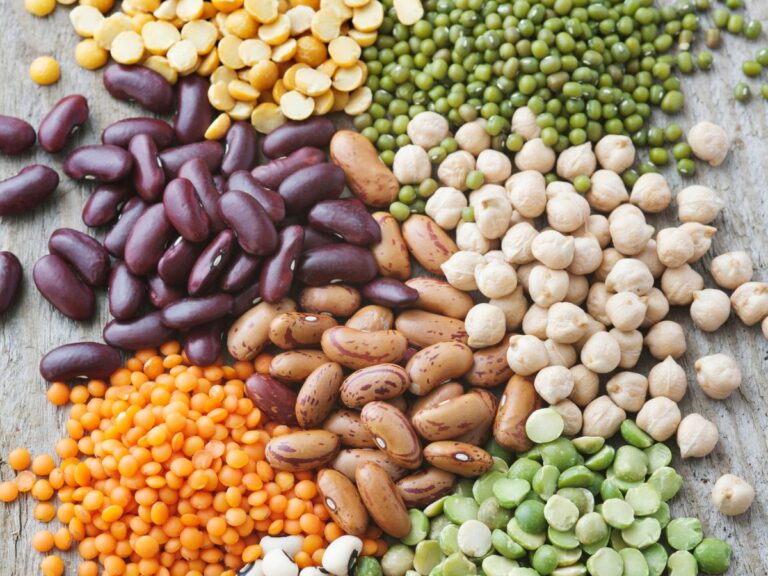
One Comment